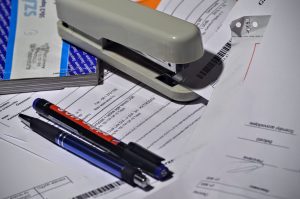 A bookkeeper is responsible for handling a wide range of tasks for small businesses including preparing them for tax deadlines, processing payrolls, producing invoices, and chasing payments.
A bookkeeper is responsible for handling a wide range of tasks for small businesses including preparing them for tax deadlines, processing payrolls, producing invoices, and chasing payments.
1. Day to Day Management of Accounts
A bookkeeper will help to keep your business accounts updated on a daily basis. They keep track of every sale or purchase and use software to record it all. This way they are able to keep a close eye on your cash flow. In addition, it helps to minimise data entry time.
2. Maintain Updated and Accurate Records
A bookkeeper Exeter helps to ensure that your business records are up-to-date. In addition, it is their responsibility to point out any inconsistencies or discrepancies between your business accounts and the books. This makes it much easier for you to resolve issues.
3. Compliance With the Law
When it comes to business, tax is often a delicate area. One error is enough to warrant a letter from the HMRC. A bookkeeper can help to ensure that the business remains compliant with all the relevant laws. Keep in mind that a bookkeeper is there to help and not make things more complicated.
4. Tax Preparations
Same as the applying laws and regulations, tax deadlines are strict. Many small business owners don’t pay much attention to bookkeeping which can make it easy to forget about tax deadlines. To avoid getting into trouble with the taxman and paying penalties and fines, having a bookkeeper will help ensure that your records are always correct, thus, ensuring that you are prepared for taxes.
5. Manage Bank Feeds
A basic function of bookkeepers is to manage transactions conducted via software i.e apps. Bank feeds, linking the software to your business bank account, lets you view all transactions in real-time.
6. Handling Accounts Payable
Bookkeepers are often the ones who make payments on behalf of small businesses. This includes paying suppliers, petty cash, and expenses.
7. Send Out Invoices and Manage Accounts Receivable
Preparing invoices and sending them to your clients to ensure that you receive timely payment is another key responsibility of your bookkeepers They also manage the accounts receivable ledger. Your bookkeeper will also chase up late payments to ensure that records remain accurate.
8. Preparing Financial Statements
Small business bookkeepers are responsible for preparing various important financial statements including balance sheets, cash flow statements, and profit and loss statements.
These reports usually show your business’ bottom line and operating costs, the balance of assets and liabilities, and also cash flowing in and out of the business.
9. Process Payroll
It is important to note that the services of a bookkeeper are diverse. One important task is fulfilling HR functions for small businesses. This often includes helping businesses with processing pay-checks and employee tax payments.
10. Dealing With Foreign Currency Transactions
Bookkeepers are also responsible for maintaining correct foreign currency accounts while using the current exchange rates. By using compatible digital bookkeeping apps that can analyse exchange rates in real-time, bookkeepers help to make the process much easier. This also helps to ensure minimal time wastage.
11. Perform Stocktake
Bookkeepers are also responsible for producing inventory reports by taking a count of all stock items. In case there are any inconsistencies, they will quickly report it to you to have the issue addressed as soon as possible.
